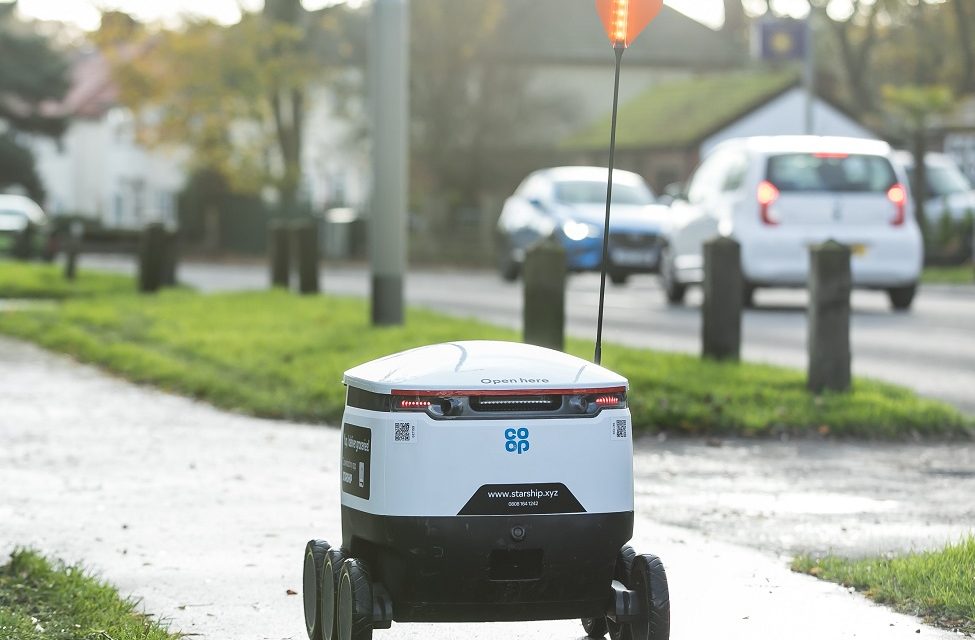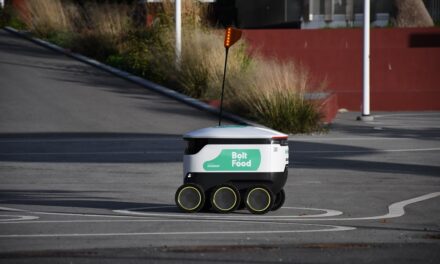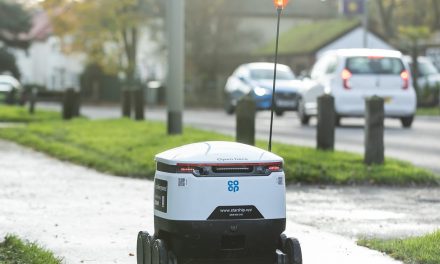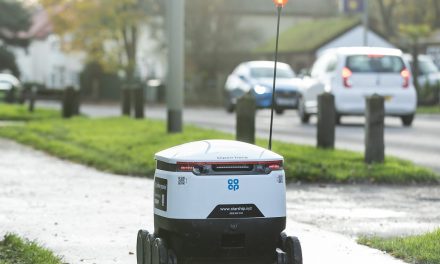
Starship Technologies: Autonomous delivery is a reality for hundreds of thousands of people every day

Starship Technologies, the company making science fiction a reality by putting delivery robots on streets in the US and Europe, is announcing it has raised $90 million, co-led by Plural and Iconical.
The new funding, which brings the total raised by Starship to $230M since its creation in 2014, will be used to expand globally as Starship looks to take advantage of the unstoppable rise in demand for home deliveries.
Launched in 2014, Starship’s delivery robots have become a common sight on streets across Europe and the US and the company is now the world’s leading autonomous delivery service, making more than six million deliveries and transforming last-mile delivery. Found in 80 locations across the world including the US, UK, Germany, Denmark, Estonia and Finland, the robots use less energy than humans* to deliver takeaways, grocery orders, tools and corporate documents to customers’ doors.
Taking on the supply chain’s difficult last mile
Last-mile and on-demand delivery, the most costly and carbon-intensive aspect of the supply chain, has been a stumbling block for logistics businesses across the world, yet demand is growing for rapid deliveries of food and other goods. The online food delivery market in particular is expected to more than double by 2030, whilst the carbon emissions from last-mile delivery in Europe alone are expected to reach 5.5 million tonnes of carbon dioxide in 2032, the equivalent to 1.2 million gas-powered cars. Starship has created the most cost-effective, ethical and sustainable way to deliver goods directly to a customer over a short distance, solving the last-mile delivery industry’s major challenges.
Each Starship robot can run for 18 hours fully charged, and the average delivery takes only the same amount of energy as boiling a kettle for a single cup of tea. Since launch, Starship robots have reduced almost 1.8M kg of carbon dioxide. As well, by using robots, rather than humans on low wages riding through traffic, it has pioneered a more ethical, sustainable business that is used by customers including Bolt, Co-Op, Grubhub and Sodexo.
Perfecting autonomous technology
Starship has been able to make autonomous delivery a commercial reality by perfecting its technology over the past 10 years. The robots are 99% autonomous and can react safely to difficult situations and obstacles, including snow, rocky terrain and blockages en route, with three crossings made on average every second around the world. It took six years for Starship to reach one million deliveries and half that to complete the next five million.
Recently, Starship introduced groundbreaking wireless charging for its robots at George Mason University in the US. In a world’s first, Starship robots can now recharge autonomously and wirelessly in between deliveries. Starship plans to roll out its wireless charging solution globally in the months to come, adding further efficiencies to the last-mile delivery process and fulfilling the vision of creating a fully autonomous system that can easily be deployed at scale.
Investing in an innovative team
Over the past 10 years, Starship has created a world-class team of engineers, data scientists, designers and operations specialists which are driving forward the new world of sustainable, autonomous logistics. Its team members are based at the founding office in Tallinn, Estonia, in its global HQ, San Francisco and across the US, UK, Denmark, Finland and Germany.
The new investment round will enable Starship to use continuing advances in AI and machine learning to further develop its AI, tech and wireless charging infrastructure, as it expands to more markets internationally – particularly with its Delivery as a Service (DaaS) product, which sees Starship robots integrate into the delivery infrastructure of its partners.
Ahti Heinla, Co-founder and CEO at Starship Technologies, said: “Autonomous delivery isn’t some science fiction concept from Bladerunner for decades in the future, it’s a reality for hundreds of thousands of people every day. Building a company like Starship takes at least a decade of perfecting the technology, streamlining operations and reducing costs to make last-mile autonomous delivery viable and sustainable at scale. Now we’re ready to take on the world and with ambitions to build a category-dominating company that can change the daily lives of millions of people in thousands of locations worldwide.”
Taavet Hinrikus, Partner at Plural, said: “Starship is the global leader in autonomous technology, built in Europe. For the past 10 years, the team have been working tirelessly to build the most advanced autonomous logistics technology in the world, driving more miles and making more deliveries than any other company, whilst reducing the impact of last-mile and on-demand delivery on the planet. The culmination of this hard work over the past decade and this new funding means Starship is well-positioned for accelerated growth. We’re looking forward to supporting Ahti and the team on this journey to becoming one of Europe’s most successful global companies.”










